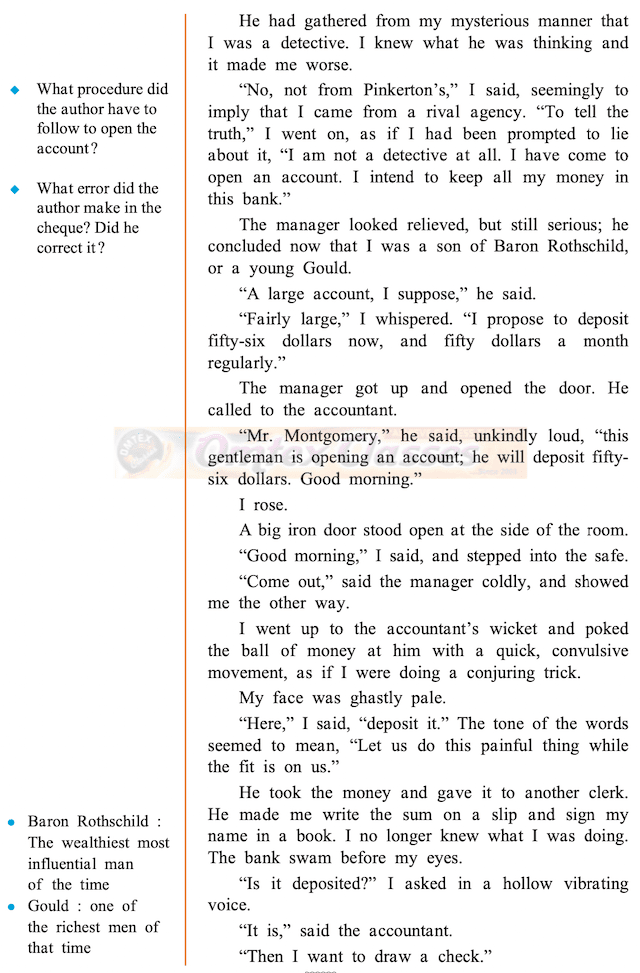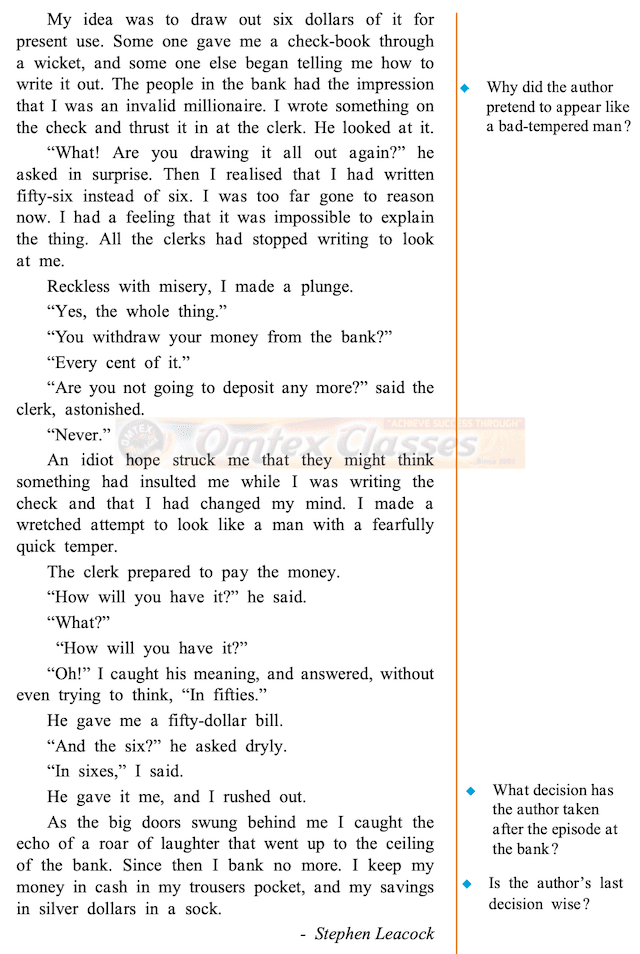Chapter 4: My Financial Career
When you open a savings account at the bank you need to fill up Deposit forms/slips. Observe the following forms and fill up your details.
SOLUTION

Write in your own words:-
Why does the bank need so many details of its customer?
SOLUTION
The bank needs so many details of its customer to avoid fraudulent transactions and safeguard their accounts. Banks ask questions to its customers on different matters because they want to know them and their life situation so that they can provide good advice and offer banking services suited to the needs of its customers through (KNOW YOUR CUSTOMER-KYC) Banks get information from customers so that they can support banks against crime and bear their share of social responsibility.
What problems do customers face when they have to make a cash deposit at a bank?
SOLUTION
Some of the problems that customers have to face when they have to make a cash deposit at a bank are that there is a long queue so it involves a lot of time. Knowledge of filling up the details of a customer is a must which illiterate people generally face. Sometimes, the bank server is down and not functioning which can be an acute problem in depositing cash. Moreover, many banks will not let you deposit cash into an account which does not bear your name as an account holder.
What are the latest modern methods of depositing money in your own or somebody else’s account?
SOLUTION
Some of the latest modem methods of depositing money in our own or somebody's account are
ATM counters: withdraw cash at any Automated Teller Machine.
Cheque and Pay Order.
Electronic funds transfer.
Standing Order.
SWIFT: International Account transfer.
Online banking.
Overdraft.
Banking through Apps.

Make a word web of at least 12 words related to BANKING.
SOLUTION
Some of the words related to BANKING are as follows: balance, bank statement, borrower, cardholder, credit limit, depositor, interest, overdraft, passbook, savings, telebanking, paying-in slip, withdrawal, lending rate, debit, commission, banker's order, credit, account (a/c), etc.
Find from the lesson, the antonyms of the following.
SOLUTION

Fill in the blank choosing the appropriate word/idiom from the lesson.
The ______ solved the mysterious crime.
SOLUTION
The detective solved the mysterious crime.
In the examination, I did not know the answer, so I ______.
SOLUTION
In the examination, I did not know the answer, so I became a hesitating jay.
He was dizzy and he ______ the room.
SOLUTION
He was dizzy and he shambled the room.
While arguing with his elders he had ______.
SOLUTION
While arguing with his elders he had made a wretched attempt to look like a man with a fearfully quick temper.
The sight of a snake ______.
SOLUTION
The sight of a snake rattled him.
As soon as I ______ of my home, I greet my family.
SOLUTION
As soon as I cross the threshold of my home, I greet my family.
Using the following points frame a character sketch of the narrator. Support each character trait with instances from the lesson.
Diffident and timid
Unusual behavior
Ignorant about banking
Nervous and careless
Economical.
SOLUTION
Diffident and timid - The writer's salary had been raised to fifty dollars a month and the bank was the only safe place for it. So, he got diffident and timid to speak to the staff in that bank.
Unusual behavior - When the narrator caught the sight of the Accountant, his voice went sepulchral. He asked for the manager and added solemnly, 'along.' That was an unusual behavior of the writer.
Ignorant about banking - The writer says, the moment he crosses the threshold of a bank, he becomes a hesitating jay and if he becomes to transact business there, he becomes an irresponsible idiot.
Nervous and careless - He gets nervous about receiving the check-book to enter the amount to be withdrawn. The writer goes careless when he enters fifty-six dollars in the check instead of just six.
Economical - The writer's attitude gets economical when he decides to keep his money in cash in his trousers pocket, and his savings in silver dollars in a sock.

Rewrite the following in indirect speech.
“Can I see the manager?” I said, “Certainly,” said the accountant.
SOLUTION
I asked whether I could see the manager and the accountant replied in the affirmative.
“Good morning,” I said and stepped into the safe.
“Come out,” said the manager coldly.
SOLUTION
The manager ordered me coldly, to go out.
….. the words seemed to mean, “Let us do this painful thing while the fit is on us.”
SOLUTION
The words seemed to mean that they should do that painful thing while the fit was on them.
“What! Are you drawing it all out again?” he asked in surprise.
“Yes, the whole thing,” I said.
SOLUTION
He exclaimed in surprise and asked whether I was drawing it all out again. I replied in the affirmative that I would draw the whole thing.
“How will you have it?” he said.
“In the fifties,” I said.
SOLUTION
He asked how would I have it and I replied that I would have it in the fifties.

Read the statement, write your views first, and counterview later, in two separate passages. ‘Online/Net Banking is better than going personally to the bank for transactions.’
SOLUTION
'Online/Net Banking is better than going personally to the bank for transactions.'

Balbharati Solutions for English Kumarbharati 9th Standard Maharashtra State Board
• Chapter 1.2: A Synopsis-The Swiss Family Robinson
• Chapter 1.3: Have you ever seen...?
• Chapter 1.4: Have you thought of the verb ‘have’
• Chapter 2.2: A True Story of Sea Turtles
• Chapter 2.3: Somebody’s Mother
• Chapter 2.4: The Fall of Troy
• Chapter 2.6: The Past in the Present
• Chapter 3.2: Reading Works of Art
• Chapter 3.3: The Road Not Taken
• Chapter 3.4: How the First Letter was Written
• Chapter 4.2: The Storyteller
• Chapter 4.3: Intellectual Rubbish
• Chapter 4.4: My Financial Career
.









